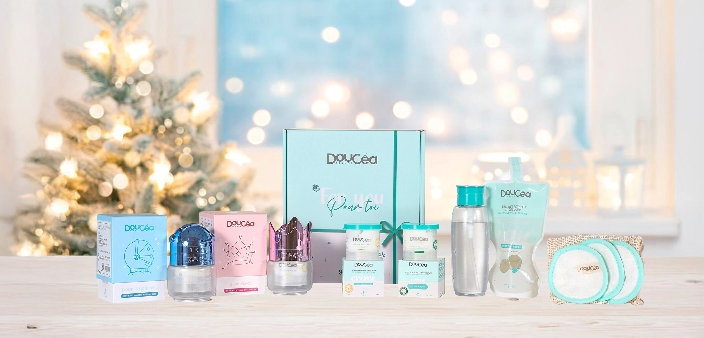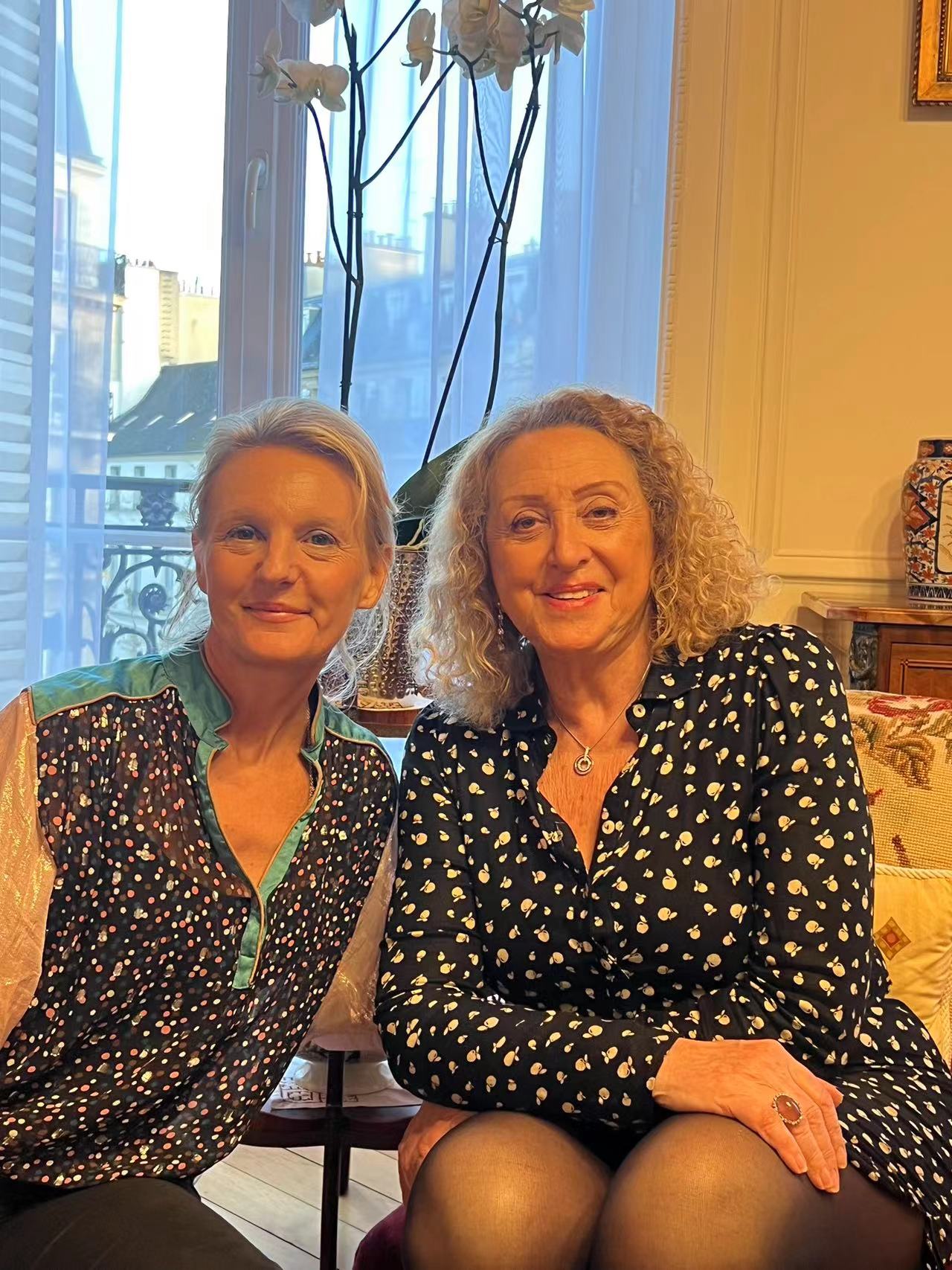A pediatrician, a doctor specializing in children's health, plays a vital role in ensuring their well-being, growth, and physical and mental development. Building a trusting relationship with parents from birth, the pediatrician is a valuable ally in monitoring children's health.
 Dr. Fangous with our founder Natacha Tarascon
Dr. Fangous with our founder Natacha Tarascon
We had the opportunity to speak with Dr. Fangous, a pediatrician in Paris, who kindly shared her expertise in caring for young children. She also favors the philosophy of "less is more," an approach that resonates with Doucéa's approach.
''I recently discovered Doucea, in particular the Doutopia cream, and I was immediately drawn to this concept...because I too was confronted with the abandonment of care (too sticky, too greasy, not fun...) by my little patients after a few days of treatment.'' Dr Fangous
Hello Dr. FANGOUS, could you briefly introduce yourself?
Hello, I'm French, but I was born in Morocco, because my parents were expatriates there. I returned to France at the age of 7, where I went to school and then studied medicine in Paris. I worked in a hospital setting and opened my pediatric practice in Paris's 4th arrondissement! 
How long have you been practicing your profession?
I have been practicing this profession for 50 years, in the neighborhood, I am nicknamed "the pediatrician granny", because I have sometimes treated 3 generations: my first patients were grandparents like me!
What are the common concerns among the young parents you support, particularly regarding skin care for their babies?
Parents have a variety of concerns, especially regarding newborn care. They question the suitability of products, especially for atopic skin. Questions also concern the gentleness and pH of cleansers, as well as how to manage problems such as diaper rash or cradle cap. A new trend... Endocrine disruptors... The latter is a major concern for them.
Are parents sufficiently informed about endocrine disruptors?
Not really, but the growing awareness about it is making them more vigilant.
Endocrine disruptors are chemicals found in everyday products, such as personal care products, plastics, and pesticides. These substances can interfere with the normal functioning of the endocrine system, which regulates hormones in our bodies.
In children, exposure to these disruptors can have negative consequences on their development.
How does a baby's skin differ from that of a child and then an adult?
A baby's skin up to the age of 6 is five times thinner than that of an adult. Since the sebaceous glands (which release lipids) and sudoriferous glands (which release sweat) are less active, the hydrolipidic film and protective acid mantle are less effective. In addition, the skin does not produce melanin during the first year, making the baby's skin more vulnerable. These factors make the baby's skin an immature protective barrier, leading to greater permeability to products and an increased risk of skin dryness, not to mention the lack of natural protection against UV rays.
Do you have any recommendations to help parents choose the right care for their baby/young child?
Due to the fragility of the hydrolipidic layer and the reduced effectiveness of the acid mantle, it is essential to opt for extremely gentle, soap-free skincare products with a neutral pH or less than 7, and without endocrine disruptors or additives. Limiting bath time is crucial to preserve the hydrolipidic layer, as is using lukewarm water, which is less aggressive for the skin. Regular moisturizing is essential, especially in the case of atopic skin. Finally, protecting the skin from UV rays is essential.

What do you think would be a good baby care routine?
It is not necessary to bathe your baby every day, unless absolutely necessary. A bath every other day is usually sufficient. Opt for lukewarm water and avoid leaving your baby in the water for too long. Use a suitable soap, dry the folds well to avoid fungal infections, and occasionally enjoy a massage to moisturize your baby's skin with an appropriate oil/cream. Complete the treatment (face or exposed areas) with a moisturizer (especially in winter). This will not only moisturize your baby's skin but also soothe your baby.
Many thanks to Dr. FANGOUS for this insightful advice on children's skin health!














